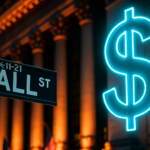A new directive from President Donald Trump seeks to curb ticket scalping in the live entertainment sector by mandating stricter enforcement of existing laws and greater market transparency. The executive order targets the use of automated bots that allow scalpers to purchase large volumes of tickets for resale at inflated prices, often many times above face value. The initiative calls for multiple federal agencies to coordinate enforcement efforts and submit a detailed progress report within six months. The move highlights broader concerns about consumer access, artist compensation, and unfair market practices in the concert ticketing industry.
When the Better Online Ticket Sales (BOTS) Act became law in 2016, it was considered a bipartisan effort to prevent automated software from distorting the primary ticket market. However, enforcement has remained minimal, with only one official action taken by the Federal Trade Commission (FTC) over eight years. This lack of oversight allowed scalpers to continue using bots unchecked, leading to inflated prices and limited access. The new order marks a shift from passive regulation to active intervention, signaling a renewed approach under the Trump administration.
What are the key directives in the order?
The order directs the attorney general and the FTC to enforce antitrust laws within the live entertainment industry. Additionally, the FTC is instructed to apply the BOTS Act more rigorously, ensure full price transparency throughout the ticket purchasing process, and prevent manipulative conduct in secondary markets. The secretary of the Treasury is also tasked with collaborating on legal compliance measures for ticket resellers. A report detailing the steps taken and recommendations for further action must be submitted within 180 days.
How do bots and scalping affect consumers and artists?
Scalpers often use bots to rapidly buy large quantities of tickets at face value, which are then resold on secondary platforms at prices up to 70 times higher. These inflated prices limit access to entertainment for average consumers and deprive artists of potential income from market-based ticket pricing. The executive order accuses these intermediaries of exploiting market inefficiencies for profit while offering little value to fans or performers.
Trump emphasized the impact of these practices on public access to entertainment and described current scalping activity as harmful to both consumers and the industry.
“The rent-seeking behaviors surrounding the ticketing industry are contrary to this goal. They are detrimental to consumers and capitalize on market distortions that must not be allowed to persist,”
he stated in the executive order. The administration’s stated goal is to promote fairness and access in a market that directly affects millions of Americans.
While the BOTS Act was initially seen as a protective measure for consumers, limited enforcement has rendered it largely symbolic. The FTC’s single enforcement case since the Act’s inception underscored a lack of prioritization. With this executive order, the administration is attempting to shift that dynamic by applying political pressure on regulatory agencies to act more aggressively. The entertainment industry, meanwhile, continues to grapple with balancing artist interests, fan access, and third-party resale markets.
The executive order’s effectiveness will depend largely on how quickly and thoroughly the involved agencies can act. Real-time monitoring of bot usage, improved resale tracking, and transparent pricing mechanisms could help deter exploitative practices. For consumers, awareness of legitimate ticket platforms and early purchase windows remains essential. Industry observers will be watching closely to see whether this directive leads to meaningful changes or becomes another dormant policy. If enforced as directed, the order could reduce price gouging and improve ticket availability—two long-standing issues in the live entertainment market.










